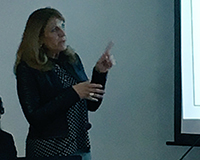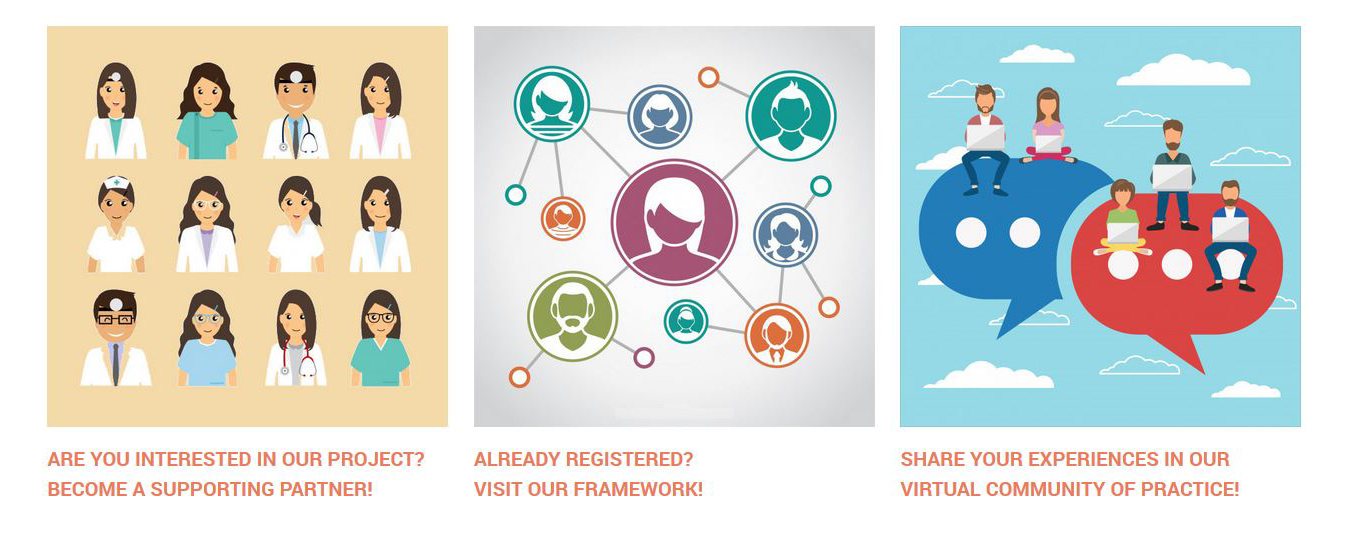Improving vocational education for home care professionals: CARESS presents its results
Wednesday 3rd October 2018
The CARESS Erasmus+ project is a unique endeavour to improve vocational education and training (VET) in the field of home care, the importance of which is growing with demographic change and innovative ways to provide care.
For three years, educational institutions and other partners from Finland, Spain and Italy have sketched out the main needs for professional and transversal skills in the sector, created specific and common learning modules and launched a Virtual Community of Practice to help professionals sharing their promising practices.
The main results have been presented at the CARESS conference in Brussels on 03 October 2018.
CARESS, a project filling competency gaps in an ever more important sectors
 |
Pavol Krempaský of the Executive Agency for Education, Audiovisual and Culture, managing the Erasmus+ programme, introduced the bigger idea behind Sector Skills Alliances, designed to address the skills gaps of a sector and to develop trainings based on these identified gaps. Projects like CARESS have an important role to fill the competency gaps linked to employment sector with growing needs – long-term care and specifically home care are one example for this. |
 |
The project coordinator, Serena Alvino of SI4Life, gave an overview over the project: it aimed to support the identification of skills gaps in 31 European countries in the field of homecare, and to foster the design of learning modules that can be used to address these gaps. Three innovative pilot courses have been designed and carried out in order to test the main tools provided by the project. In addition, a Virtual Community of Practice encourages active exchange between learners, professionals and teachers, giving an element of non-formal learning. |
Changing care realities require new skills – and virtual exchange!
 |
Sirje Hassinen of the Finnish VET provider Omnia explained how skills gaps were identified. |
 |
In a second part, the pilot courses were presented. Maria Rosa Troiani (teacher of Vittorio Emanuele II - Ruffini) reported that especially the use of the e-Learning platform and new modules on the use of ICT have been very successful with the Italian students and will be permanently included in the Social and Health Operators curriculum. The teachers have been working with the reference persons of Liguria Region, a partner who plays a regulatory function in VET, to integrate the CARESS results in both the regional qualifications index and in the regional guidelines for education of home care practitioners. |
 |
Jenni Nurmisto of Omnia reported that Finnish students and teachers saw the training materials positively, and they will continue to be used as part of the course. |
 |
In Spain, the E-Learning platform and the Virtual Community of Practice developed by the project have been very useful, said Leonor Pérez Ruiz of the University of Valladolid, as they helped overcoming wide geographical distances between the students and their master course in the Castilia-y-León Region. In a next phase, the Virtual Community of Practice will be opened to not only include professionals, teachers and learners, but also older people themselves. This way, there will be an active exchange on home care across the sector. |
The way forward: more investment into the skills and the provision of care services is needed
A policy panel brought together the Director of LifeLongLearning Platform, Brikena Xhomaqi, the responsible for the care sector in the European trade union federation UNI Europa Adrian Durtschi and Claire Champeix of Eurocarers, a network representing informal carers. Ms Xhomaqi insisted on the need to find ways to recognise skills obtained via non-formal and informal learning, as many people gain experience in care during their lives and the importance of transversal skills is increasing. Mr Durtschi talked about the relationship between the professional carer and the person in need for care. Both do not speak the same language – symbolically and literally, in many cases. This needs more and better training. Care work gives a unique importance to emotional skills.
What makes the CARESS project unique is its call for transversal skills in all care-related professions. Claire Champeix made the case that the informal carer should be recognised – by care professionals, but also by society, and this should be taught in vocational education and training. Both formal and informal carers face an undervaluation of care work in society, improving training can help to raise that value.
Panellists claimed that there was a lack of political commitment to skills development and the validation of skills in the care sector -although there are many EU-level initiatives on this, but little is taken up by member states. There is also a lack of investment into the care sector, added Adrian Durtschi, especially given that the care needs are predictably rising. Claire Champeix added that if sufficient investments are not made, there will also be a problem in the labour market, as informal carers will bear the burden and face extreme difficulties to remain in full employment and work longer in their life, as it is being recommended for the sustainability of our social protection system’.
CARESS, a lasting project
The conference concluded with several calls to all stakeholders interested in long-term care to make the project live on:
- The EU Framework on skills in home care is a mapping information about homecare systems and professional profiles in 31 European countries member states that deal with home care.
Actual competences, roles and curricula are presented for nine main categories of professionals involved in home care. This tool will allow to design educational course targeting their skills gaps and will enable a sharing of practices at European level, in a true Erasmus spirit. However, the time goes on and the information risks getting outdated. The project is in need for supporting partners who would like to correct and/or update information in the framework. For more information, please read on here - E-learning materials, including over 90 interactive tools, 60 tools supporting collaborative learning and three videos in four languages (EN, IT, FI, ES) will be available for students self-learning on the CARESS E-Learning platform.
On the CARESS website, they will also be available for teachers to download free of charge, under a creative Commons License. The modules can be used in the teaching of other training institutions, especially as they focus on transversal skills. - The Virtual Community of Practice brings together VET teachers, different professionals, professional associations and end-users in the home care sector.
It will continue to be actively used by project partners, but can evolve into a unique place for exchanges on home care. You can now subscribe to the Virtual Community of Practice and become an active member of it.

